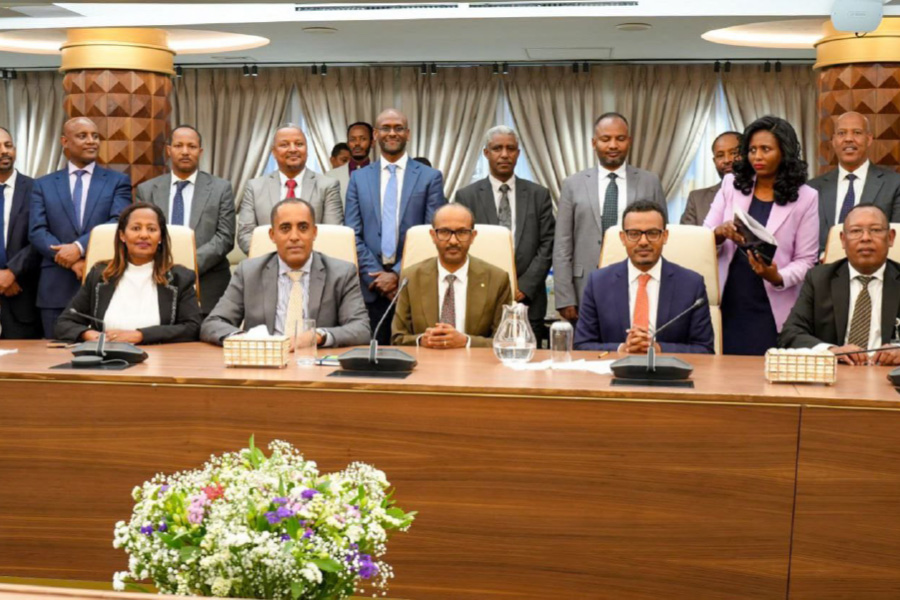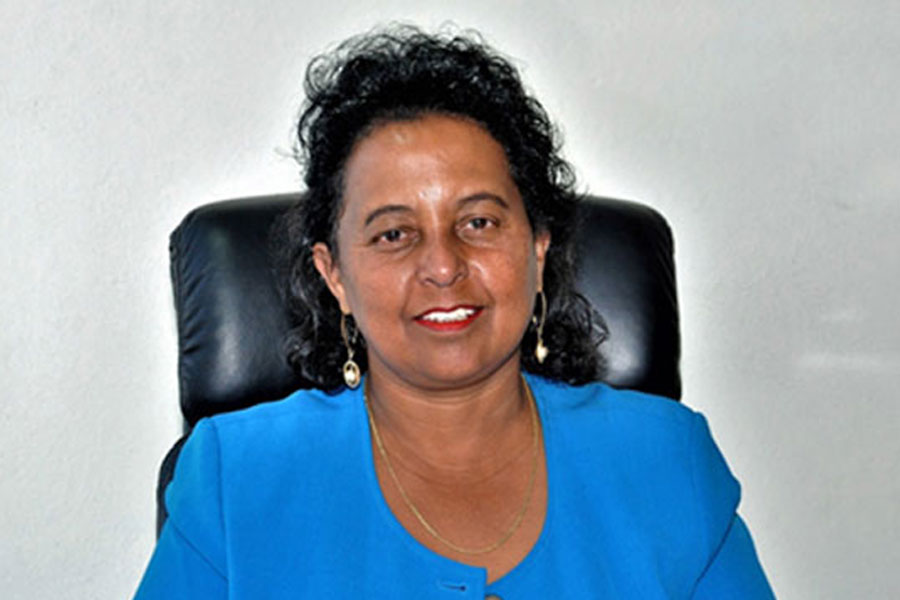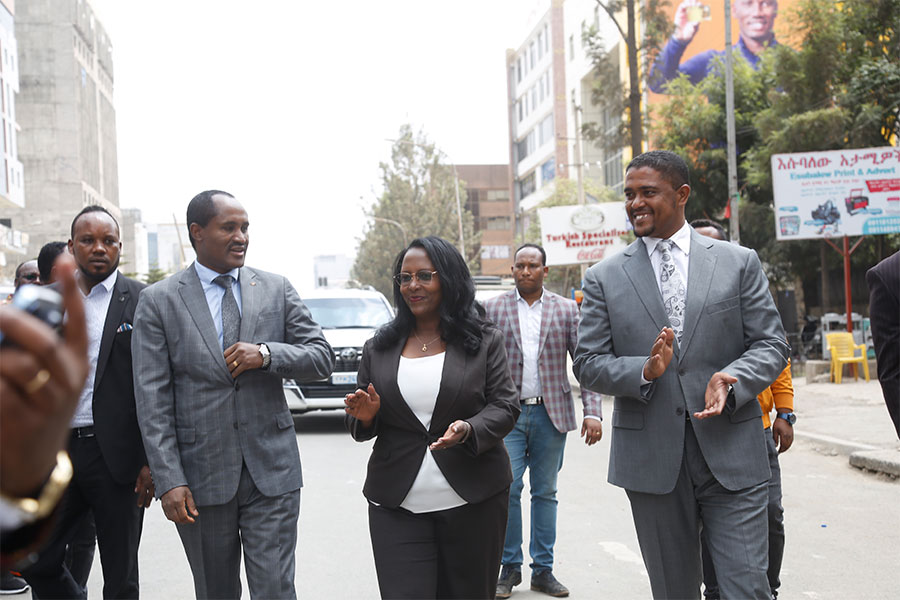
Sep 10 , 2023
By Ifeanyi M. Nsofor
It is official: July was the hottest month on record. Global warming is happening, and its costs continue to mount. The World Meteorological Organization (WMO) recently noted, "Extreme weather, climate and water-related events caused 11,778 reported disasters between 1970 and 2021, with just over two million deaths and 4.3 trillion dollars in economic losses."
Like a pandemic, climate change affects everyone, everywhere.
In Canada, the Northwest Territories' capital, Yellowknife, was recently evacuated, as hundreds of wildfires scorched the region, while the United States faces a resurgence of mosquito-borne infectious diseases such as malaria, West Nile virus, and dengue fever. In parts of Asia, severe monsoon rains have caused floods and destroyed livelihoods. In Malawi, two destructive storms compounded a protracted cholera outbreak that claimed more than 1,600 lives. The list goes on.
But the effects are not distributed evenly: nine in 10 deaths and 60pc of economic losses from climate shocks and extreme weather are in developing countries. I have seen the devastating impact of a landslide in Nanka, my hometown in southeastern Nigeria. Over the years, the increase in gully erosion has wiped out homesteads, destroyed farmlands, and contributed to rising food insecurity.
The disastrous consequences of climate change are reminiscent of the COVID-19 pandemic, which killed more than six million people, destroyed businesses and livelihoods, and ravaged the world economy. The global response to COVID-19 – now an ongoing health issue, rather than an emergency – holds important lessons for mitigating global warming.
For starters, climate change constitutes what the World Health Organization (WHO) calls a public health emergency of international concern and should be treated as such. Global warming certainly meets the WHO's typical definition: "an extraordinary event which is determined to constitute a public health risk to other states through the international spread of disease and to potentially require a coordinated international response." But, the Intergovernmental Panel on Climate Change (IPCC), rather than the WHO, is better positioned to lead the charge since it already provides governments with scientific information to develop climate policies.
The Global South must assume a larger climate leadership role. The underrepresentation of African health leaders in the construction of the COVID-19 Vaccine Global Access (COVAX) facility, for example, dealt a significant setback to the global pandemic response. Gavi, the Vaccine Alliance, together with the Coalition for Epidemic Preparedness Innovations and the WHO, had created COVAX to ensure equitable access to COVID-19 vaccines, but the initiative – which was conceived with a colonial mindset – fell far short of this ideal.
The IPCC has made the same mistake: only a small percentage of the authors of its reports are from Africa. As I have argued elsewhere, leaders from Africa, which bears a disproportionate burden of the effects of climate change and contributed the least to the global emissions that are driving it, must be at the centre of decision-making processes.
Governments must take steps to counter misinformation and disinformation. Falsehoods ran rampant during the pandemic, resulting in an infodemic – a surplus of legitimate and misleading information. With nearly five billion users worldwide, social media platforms accelerated the spread of fake COVID-19 claims. But policymakers and academics could also use them to set the facts straight.
More scientists and other experts should post on social media platforms and engage with other users to educate the public about climate change, its consequences, and how to build a greener world. Worryingly, of the users who tweeted regularly about global warming and biodiversity, nearly half had become inactive six months after Elon Musk took over Twitter, now called "X", and created more space for false information to flourish.
All countries should pay their fair share for global response efforts. During the pandemic, wealthy countries were encouraged to provide financing to help low- and middle-income countries access COVID-19 vaccinations, tests, and medicines, with mixed results.
Wealthy countries are morally responsible for providing climate aid to poorer countries, owing to their historical emissions. Last year, the United Nations Climate Change Conference (COP27) took an important step in this direction by creating a loss and damage fund for developing countries facing the effects of global warming. But as commendable as this measure was, vulnerable countries must also improve governance and combat corruption to mitigate climate change. For example, nine billion dollars worth of goods is smuggled out of Nigeria annually. The government could have invested that lost revenue in environmental projects, like preventing landslides in Nanka.
Lastly, hoarding is futile when tackling crises that are genuinely global in scope. During the COVID-19 pandemic, many countries in the Global North exacerbated inequity by stockpiling personal protective equipment, tests, vaccines, and therapeutics, and clinging to intellectual property protections. Yet infectious diseases do not respect borders; nor does climate change. Every country in the world is experiencing its devastating consequences, albeit in different forms.
Addressing climate change requires viewing and understanding the global community as one entity. My tribe in Nigeria, the Igbo, has a phrase that underscores the importance of acting collectively: "IIgwebuike". It means "we are stronger when we are united." The COVID-19 pandemic demonstrated the necessity of an equitable global governance model if we hope to bequeath a healthy planet for future generations.
PUBLISHED ON
Sep 10,2023 [ VOL
24 , NO
1219]


Fortune News | Nov 03,2024

Radar | Nov 03,2024

Featured | Sep 08,2024

Fortune News | Apr 15,2023

Fortune News | Jun 04,2022

My Opinion | 131548 Views | Aug 14,2021

My Opinion | 127903 Views | Aug 21,2021

My Opinion | 125879 Views | Sep 10,2021

My Opinion | 123510 Views | Aug 07,2021

Dec 22 , 2024 . By TIZITA SHEWAFERAW
Charged with transforming colossal state-owned enterprises into modern and competitiv...

Aug 18 , 2024 . By AKSAH ITALO
Although predictable Yonas Zerihun's job in the ride-hailing service is not immune to...

Jul 28 , 2024 . By TIZITA SHEWAFERAW
Unhabitual, perhaps too many, Samuel Gebreyohannes, 38, used to occasionally enjoy a couple of beers at breakfast. However, he recently swit...

Jul 13 , 2024 . By AKSAH ITALO
Investors who rely on tractors, trucks, and field vehicles for commuting, transporting commodities, and f...

Jun 28 , 2025
Meseret Damtie, the assertive auditor general, has never been shy about naming names...

Jun 21 , 2025
A well-worn adage says, “Budget is not destiny, but it is direction.” Examining t...

Jun 14 , 2025
Yet again, the Horn of Africa is bracing for trouble. A region already frayed by wars...

Jun 7 , 2025
Few promises shine brighter in Addis Abeba than the pledge of a roof for every family...

Jun 29 , 2025
Addis Abeba's first rains have coincided with a sweeping rise in private school tuition, prompting the city's education...

Jun 29 , 2025 . By BEZAWIT HULUAGER
Central Bank Governor Mamo Mihretu claimed a bold reconfiguration of monetary policy...

Jun 29 , 2025 . By BEZAWIT HULUAGER
The federal government is betting on a sweeping overhaul of the driver licensing regi...

Jun 29 , 2025 . By NAHOM AYELE
Gadaa Bank has listed 1.2 million shares on the Ethiopian Securities Exchange (ESX),...